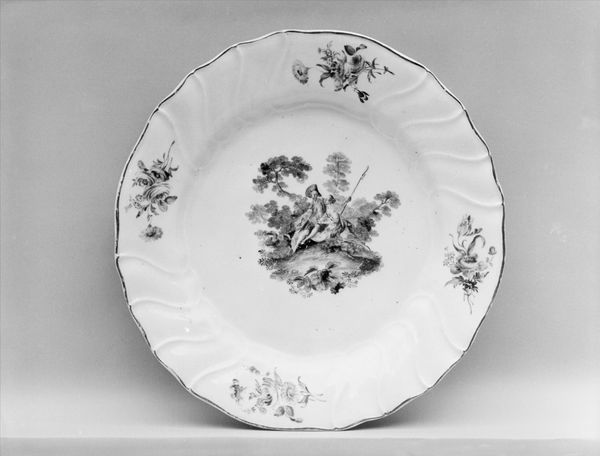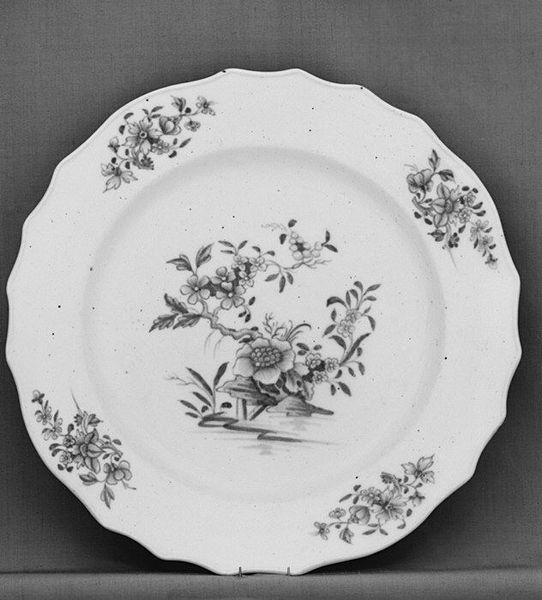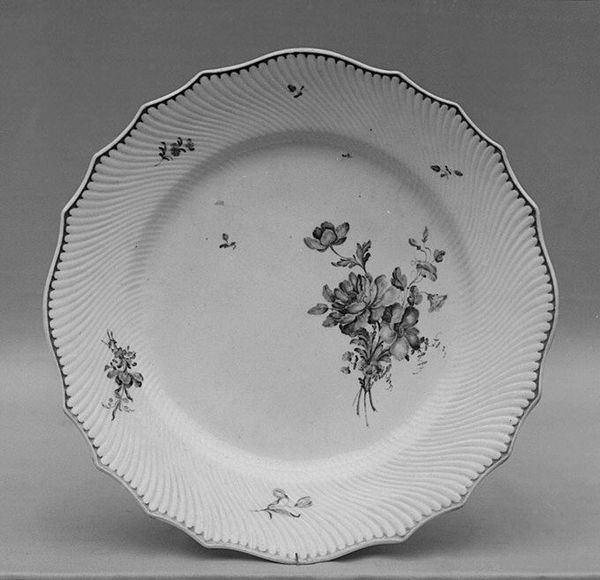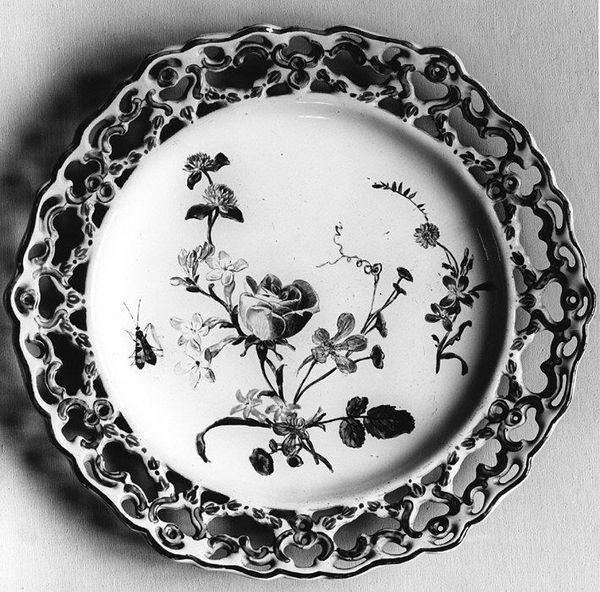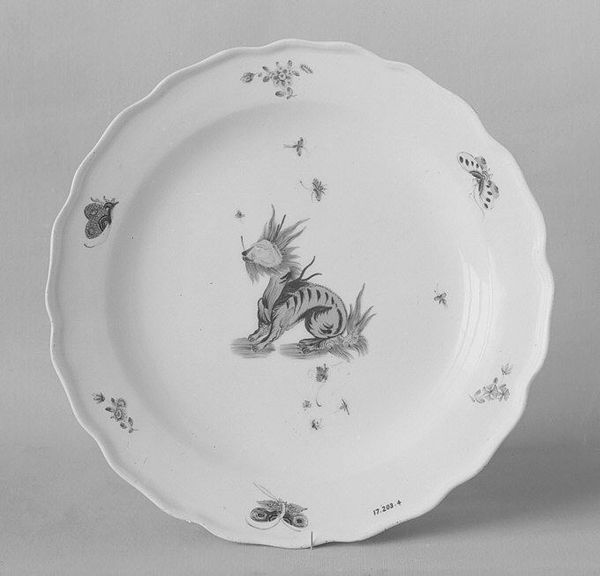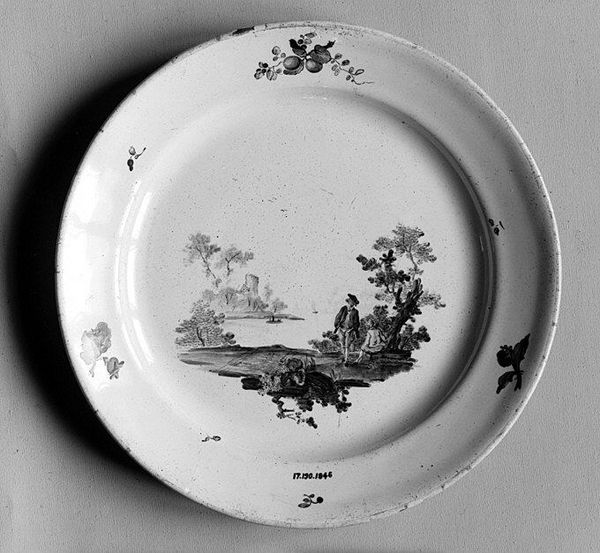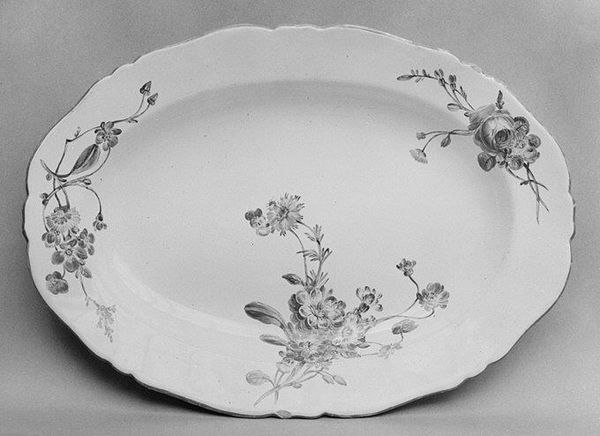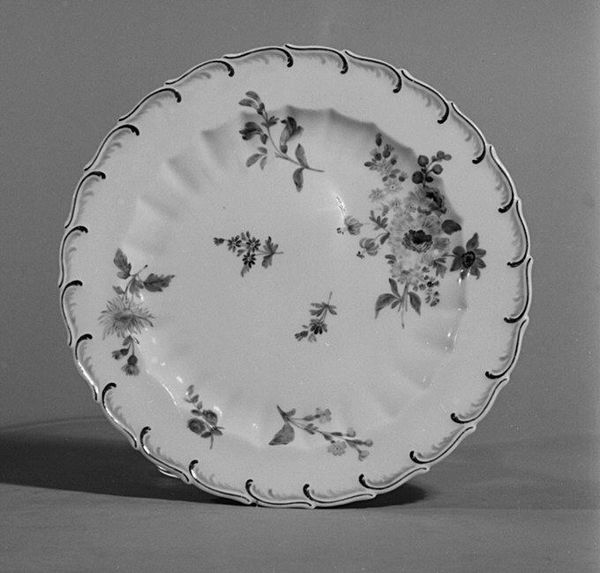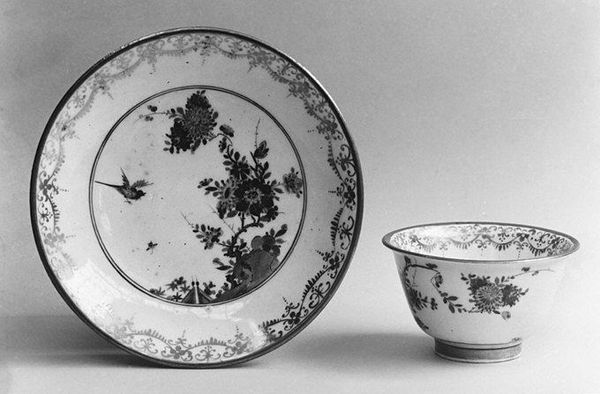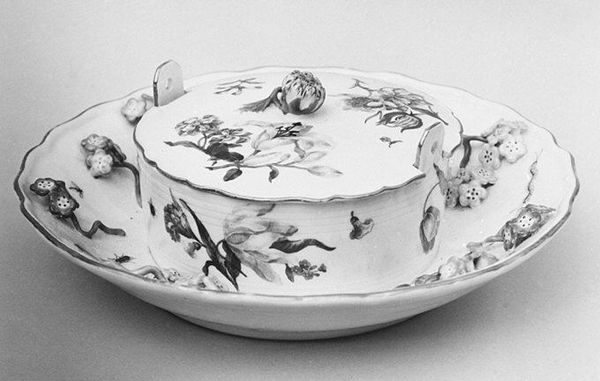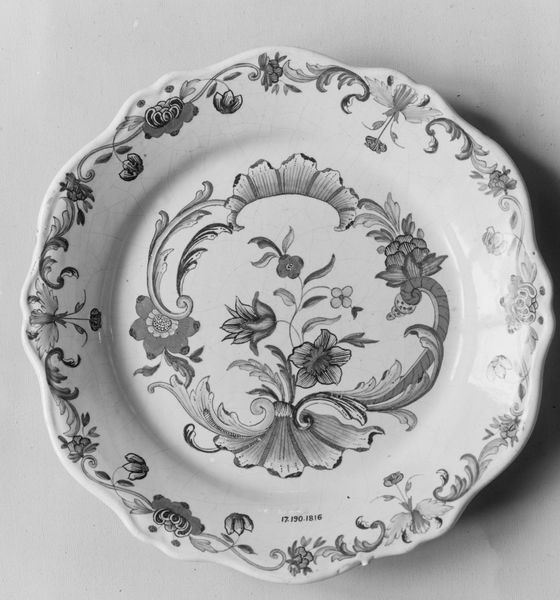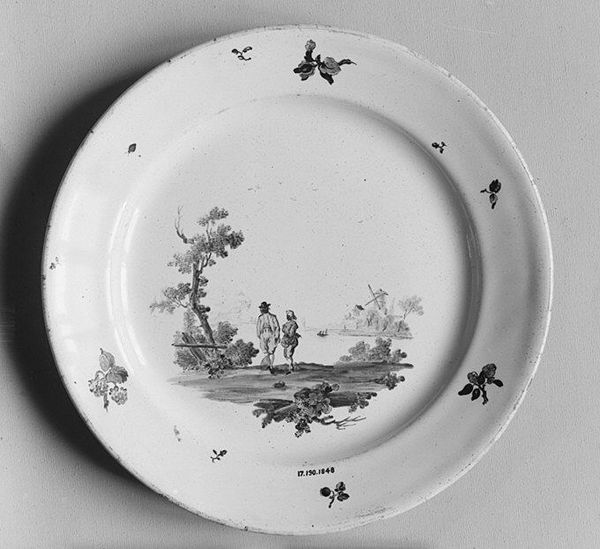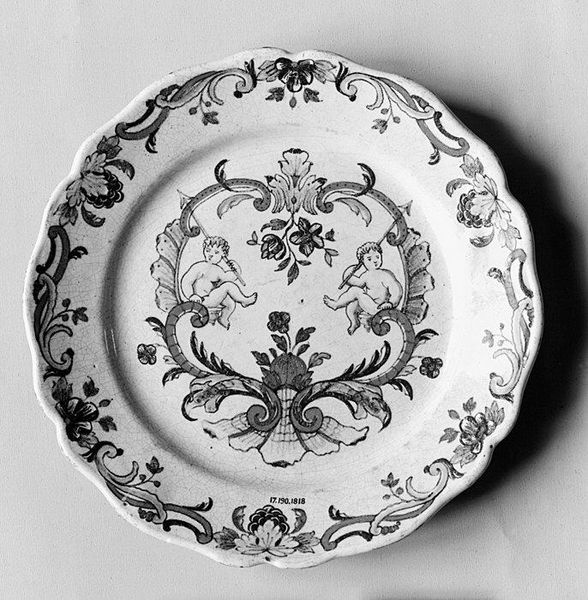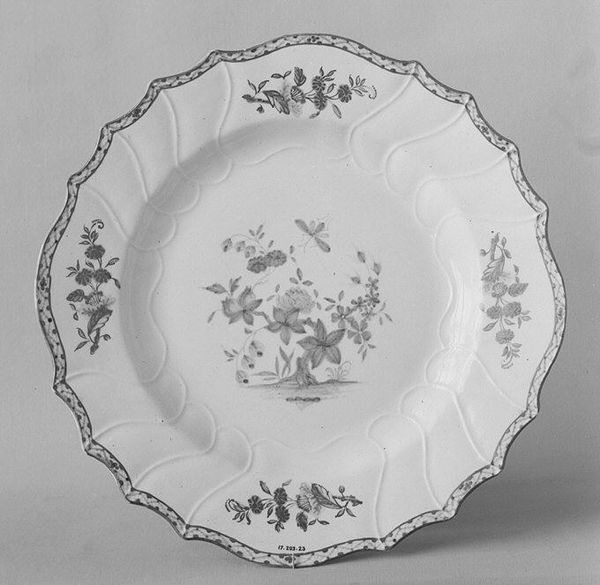
Dimensions: Diameter: 9 1/2 in. (24.1 cm)
Copyright: Public Domain
This plate was made by Niderviller, using the process of faience, which is tin-glazed earthenware. The distinctive appearance of the plate is deeply connected to the inherent qualities of the materials, from the weight of the fired clay to the reflective sheen of the glaze. Its decoration involved skilled painting, each brushstroke carefully applied to render delicate floral patterns. But it is not only a visually appealing object; this plate also reflects broader historical and social contexts. Faience was a popular choice for dinnerware because it was cheaper than true porcelain, yet still offered a refined aesthetic. These objects reflect the rise of consumerism and the democratization of luxury during the 18th century. Looking closely at this plate, we see how its significance lies not just in its aesthetic qualities, but also in the skilled labor, material choices, and social meanings embedded in its creation.
Comments
No comments
Be the first to comment and join the conversation on the ultimate creative platform.
